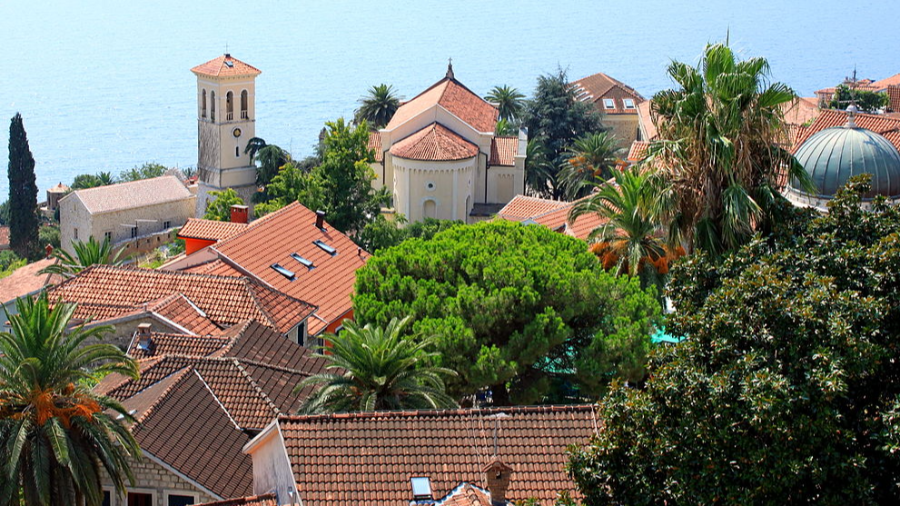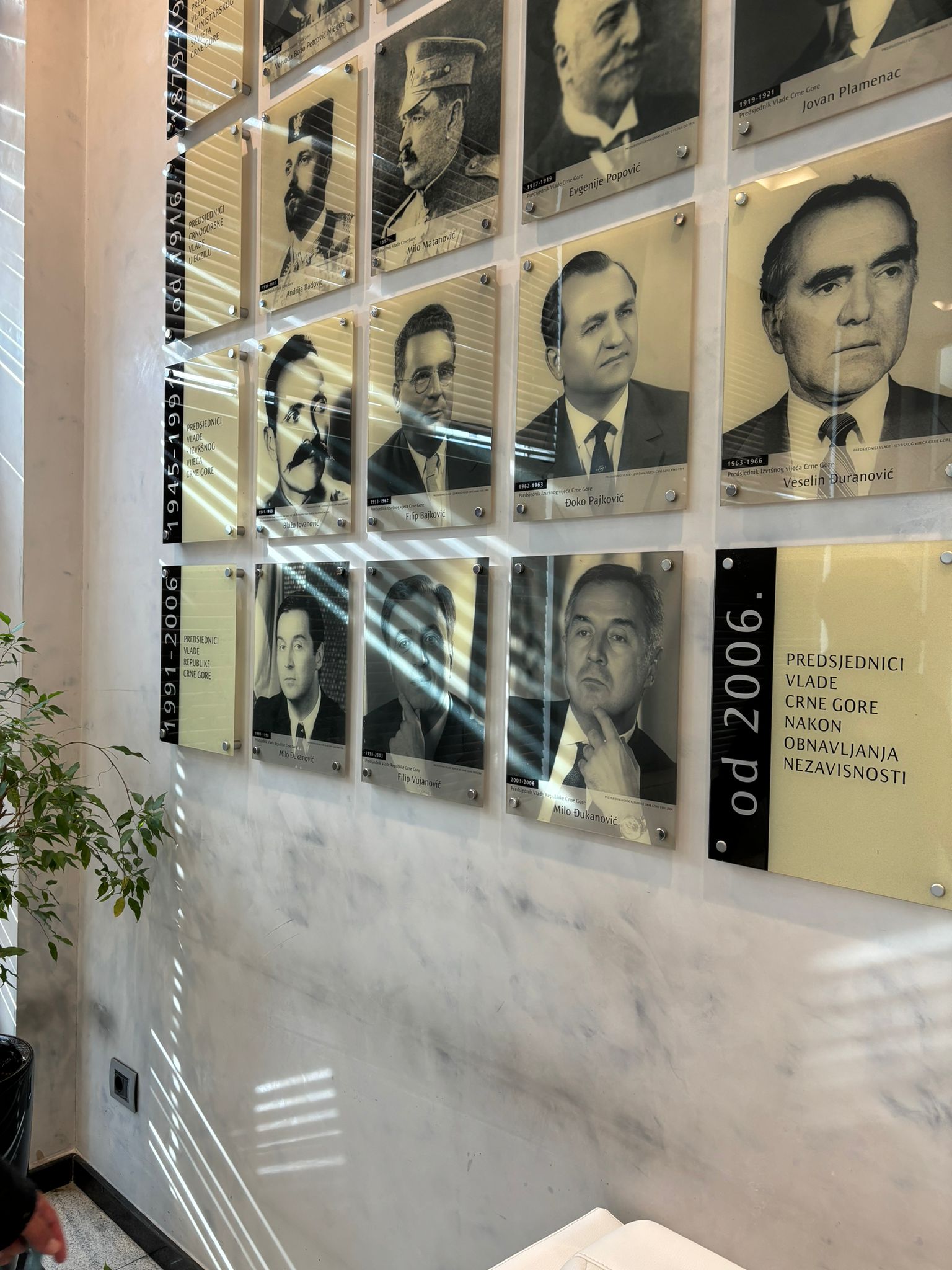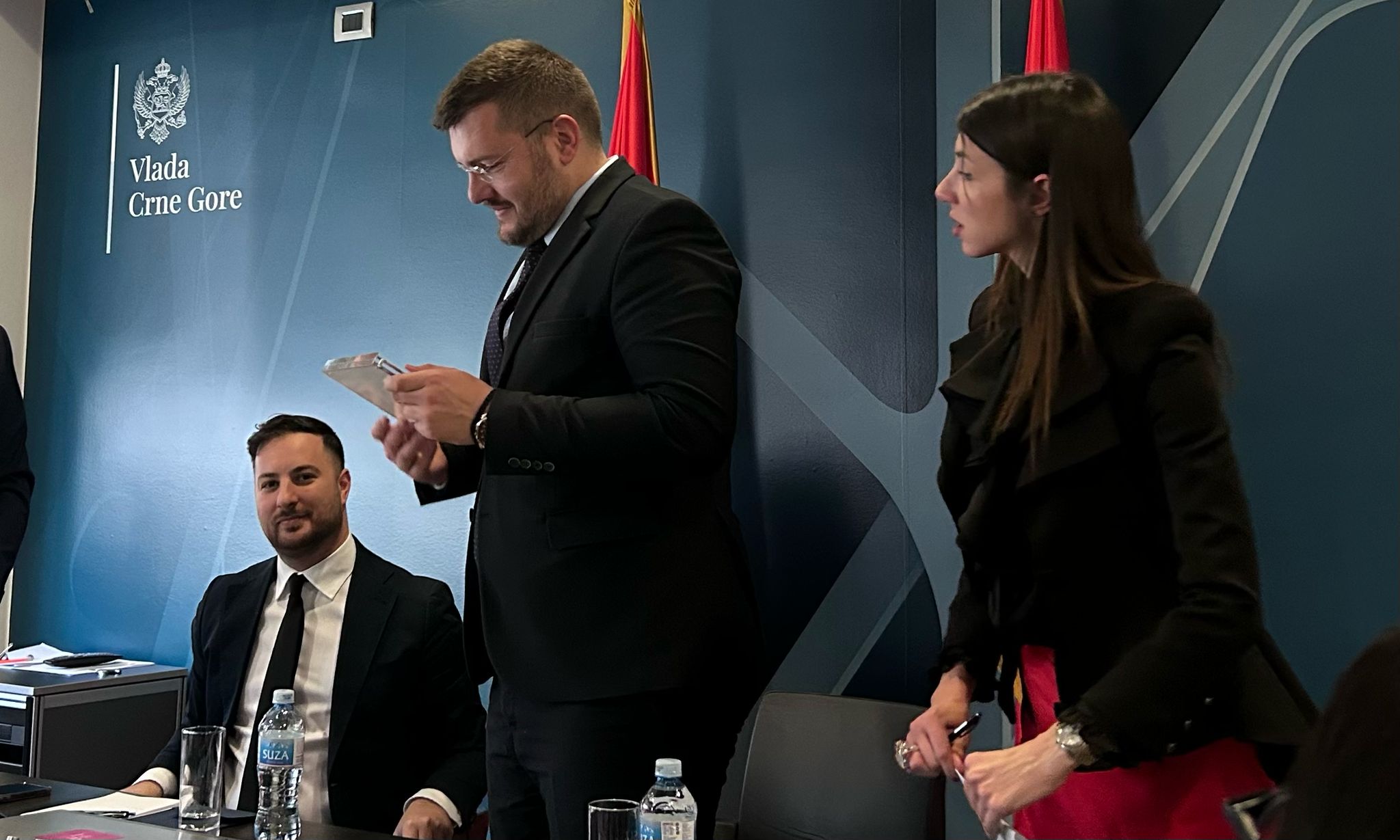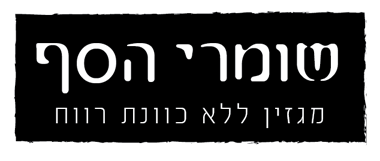The Deep Roots of Corruption: How Montenegro’s Past Shapes Its Political Future
- 6 במרץ 2025
- 0

Corruption in Montenegro is a deeply ingrained legacy from its communist past, normalized over decades of governance. As the country strives for EU membership, systemic nepotism, economic monopolies, and compromised media independence continue to challenge reform efforts. The central question remains: Can Montenegro break free from this legacy and build a transparent, accountable future?
Roots of Corruption: From Communism to Democracy
Montenegro is a small Balkan country known for its rugged mountains and rich cultural heritage. As a young nation that gained independence in 2006, it is navigating the challenges of political reform and European integration. While Montenegro’s natural beauty captures the imagination, its political landscape tells a more complex story, shaped historical legacies and ongoing challenges.
"The one-party system in communist Montenegro established a deeply entrenched foundation for corruption," explains Boris Vukicevic, Professor of International Relations and Diplomacy. Under the rule of the League of Communists of Montenegro, power was concentrated in a single authority, leaving no room for transparency or accountability. This lack of oversight made corruption almost inevitable, as the state’s rigidly controlled economy distributed resources and jobs based on personal connections and loyalty to the party, rather than merit.

This historical backdrop set the stage for the challenges Montenegro would face after the breakup of Yugoslavia. The country attempted to transition from centralized governance to democracy and a market economy, but old corruption mechanisms not only survived but also adapted to the new conditions. "Here in Montenegro, corruption is normalized," emphasizes Professor Vukicevic. Examples of this normalization range from a "modest" gift to a doctor after a visit, to significant political deals.
The Democratic Party of Socialists (DPS), which evolved from the League of Communists of Montenegro, became a central force in perpetuating these dynamics. Despite the formal transition from communism to democracy, "DPS changed its ideology, but the same people remained in power," adds Professor Vukicevic. For three decades, the party controlled key institutions, leveraging the media and law enforcement to cement its position.
This enduring influence is not merely institutional but also cultural. "The communist era influenced the mentality of Montenegrins," adds Bojan Vukojicic, a teaching assistant and PhD student at the Faculty of Political Science. This mindset, rooted in reliance on informal networks and party loyalty, has proven remarkably resilient. Even as Montenegro transitioned to democracy and a market economy, these practices continued to shape public consciousness and institutional behavior.
The effects of this deeply established governance reach well beyond the political realm, influencing daily life in Montenegro. “Corruption is everywhere—you just get used to it,” says Rasan, a 23-year-old computer engineering student. His words echo a widespread cynicism: “Everyone knows it’s there, but most people don’t believe change is possible anytime soon.”
Yet, understanding the roots of corruption is only the beginning. To fully comprehend the depth of this crisis, we must move beyond the historical backdrop to explore how these longstanding practices permeate modern Montenegro.

Nepotism: How Connections Undermine Merit and Trust
Nepotism in Montenegro is not just a cultural trait but the cornerstone of a system that fuels corruption and erodes trust in the state. Appointments to key positions in the public sector are often based not on merit but on familial and friendly ties, creating a closed circle of privileged elites.
One glaring example of nepotism in Montenegro is the Radović family, which has established a significant presence in the judiciary. Milan Radović, a former judge and Secretary General of Parliament, has multiple relatives in prominent judicial positions. His daughter, Ana Radović, was appointed Deputy Basic Prosecutor after only three years of training, while his wife, Miljana Radović, holds a deputy role with the Supreme State Prosecutor’s office. His cousin, Zoran Radović, serves as President of the Basic Court of Podgorica and oversees another relative. Meanwhile, Zoran's wife, Jelena Radović, works at the same court as an expert associate. The Radović family’s judicial dominance is more than a case of nepotism—it’s a reflection of a system where connections outweigh competence, leaving public trust in justice hanging by a thread.
For Montenegro’s youth, the impact of nepotism is personal and disheartening: "Corruption worries me, as high positions are often filled through family contacts," shares a political science student from the University of Montenegro. His perspective mirrors the frustrations of many young people who see their ambitions stifled by a system that prioritizes connections over competence, thereby hindering both individual growth and national development.
Public officials, however, often present a different story. “Public sector appointments balance professional qualifications and political considerations,” claims the Mayor of Nikšić, Mr. Marko Kovacevic. Yet, this narrative clashes with on-the-ground realities. Investigations have revealed that over 100 relatives of top government officials secured positions in public companies and administration after August 30, 2020. These findings reinforce perceptions of a system where meritocracy is sidelined, and appointments are reduced to mere formalities.
This practice finds its roots in Montenegro's political history. The longstanding dominance of the Democratic Party of Socialists has solidified nepotism as a norm, transforming state institutions from vehicles of public service into mechanisms of political control. In this landscape, nepotism is not an anomaly but a defining feature of governance, entrenching systemic inequality and stifling progress.

The Media’s Role in Fighting Corruption: Watchdogs or Compromised Players?
"The media has played a huge role in fighting corruption," says Associate Professor Natasa Ruzic, who specializes in Journalism and Media. Indeed, independent journalists have repeatedly exposed high-profile scandals—ranging from energy mismanagement to links between officials and illegal businesses. One prominent example is the suspicion that former Prime Minister Milo Đukanović was involved in cigarette smuggling into Europe. Independent media and investigative journalists brought attention to the allegations against Đukanović, particularly focusing on reports from the Italian prosecutor’s office, which claimed that his entourage profited $150 million from smuggling activities.
The media’s ability to expose corruption and hold those in power accountable has been a fundamental aspect of its role in society. However, this responsibility comes with challenges, particularly in environments where the press’s independence is compromised. While investigative journalism has uncovered major scandals, the reaction of media outlets to certain events reveals a complex interplay between truth-telling and external influences.
One striking example is the scandal involving a batch of bananas imported by the Voli supermarket chain, where more than 400 kilograms of cocaine were discovered. Such a sensational event should have spurred large-scale journalistic investigations. Instead, the Voli corporation bought the front pages of major publications like Dan, Vijesti, and Pobjeda the day after the incident, with the headline "Who Wants to Destroy Voli?". Rather than investigating smuggling and identifying the culprits, the media aided Voli in defending the company's reputation. This raised as many questions as the incident itself. Indeed, Voli’s owner, Dragan Bokan, is known for his close ties to political elites.
As long as the media remain influenced by corporate and political interests, their role as guardians of truth will remain limited. While some journalists strive to challenge the status quo, systemic pressures continue to undermine their independence.
Economy Under Control: Monopoly and Privilege
The economic roots of corruption were laid in the 1990s, when privatization became a means of redistributing wealth among the elite. "1990 was the most corrupt time," recalls Professor Boris Vukicevic. Not much has changed since. The main economic sectors—energy, tourism, and infrastructure—are still controlled by businessmen close to power. Non-transparent tenders, resource monopolization, and weak competition further reinforce the elite's dominance.
The interconnected nature of corruption, nepotism, and economic monopolization in Montenegro highlights a systemic issue that extends beyond individual cases. Whether through the appointment of unqualified individuals to powerful roles or the media's failure to fully hold elites accountable, the cycle of privilege and influence persists. Yet, the most challenging barrier to overcome is the deeply ingrained cultural acceptance of these practices. As the spotlight shifts to solutions, the question remains: Can systemic corruption, sustained over decades by normalized behaviors and institutional flaws, truly be dismantled?
Beyond Laws: Changing Montenegro’s Mindset to Combat Corruption
With the emergence of the “Europe Now!” party, the prospects for reducing corruption in Montenegro appear more tangible than ever. "We want to create a system resistant to corruption," says Mr. Momo Koprivica, Deputy Prime Minister for Political Systems, Judiciary, and Anti-Corruption. Since the change in government in October 2023, efforts have led to the arrests of police officers, judges, and other officials implicated in corrupt practices. For example, the former President of the Supreme Court of Montenegro, Vesna Medenica, was arrested in April 2022 on charges of abuse of office. Her arrest followed the release of encrypted messages indicating her alleged involvement in protecting her son's illegal activities, including cocaine trafficking and cigarette smuggling. Similarly, in April 2024, Milivoje Katnić, former Chief Special Prosecutor, and Zoran Lazović, former Deputy Police Director, were arrested on suspicion of creating a criminal organization and abusing official positions. These arrests are part of a broader effort to combat organized crime and corruption within state institutions. "Many state institutions have been criminalized, and now our task is to combat this," asserts Koprivica.
Yet, frustration and skepticism persist. "I’d prefer a little corruption—it makes things easier for me," confesses Milos, a young taxi driver. His words, though disheartening, reflect a harsh reality: corruption has long been woven into the fabric of daily life, serving as both a convenience and a survival mechanism for many. While political will is an essential starting point, addressing corruption requires more than prosecuting offenders. As Bojan notes, "Corruption in Montenegro is a kind of legacy." The challenge, therefore, is not only administrative but cultural—undoing decades of normalized corruption will demand a profound shift in societal values.
"Corruption is deeply embedded in social thinking," acknowledges Deputy Prime Minister Momo Koprivica, emphasizing that laws alone cannot undo a mindset shaped over generations. True change extends far beyond arrests or legislative reforms—it requires an enduring commitment to transparency, education, and public accountability. "We are implementing school reforms to educate young people about corruption," he explains. “We need to change how people think."
This approach transcends mere administrative measures, aiming to foster a culture rooted in integrity and a collective sense of civic responsibility. By targeting the foundation of societal values, Montenegro is beginning to challenge the normalization of corruption and lay the groundwork for a more ethical future.
As Koprivica aptly observed, "Law never creates perfect behavior—it only limits bad behavior." True transformation will only be achieved when both leaders and citizens actively reject the normalization of corruption and embrace collective integrity as a cornerstone of national progress.




